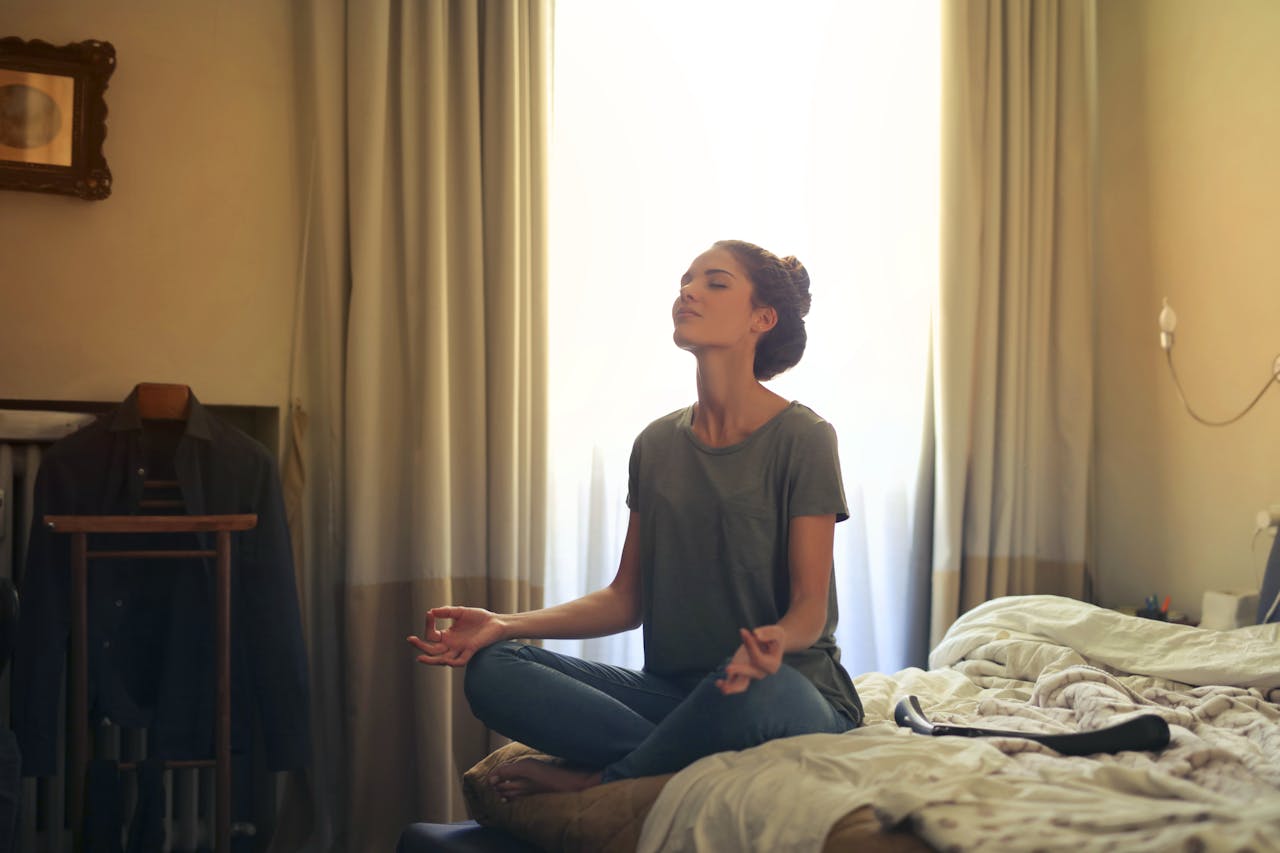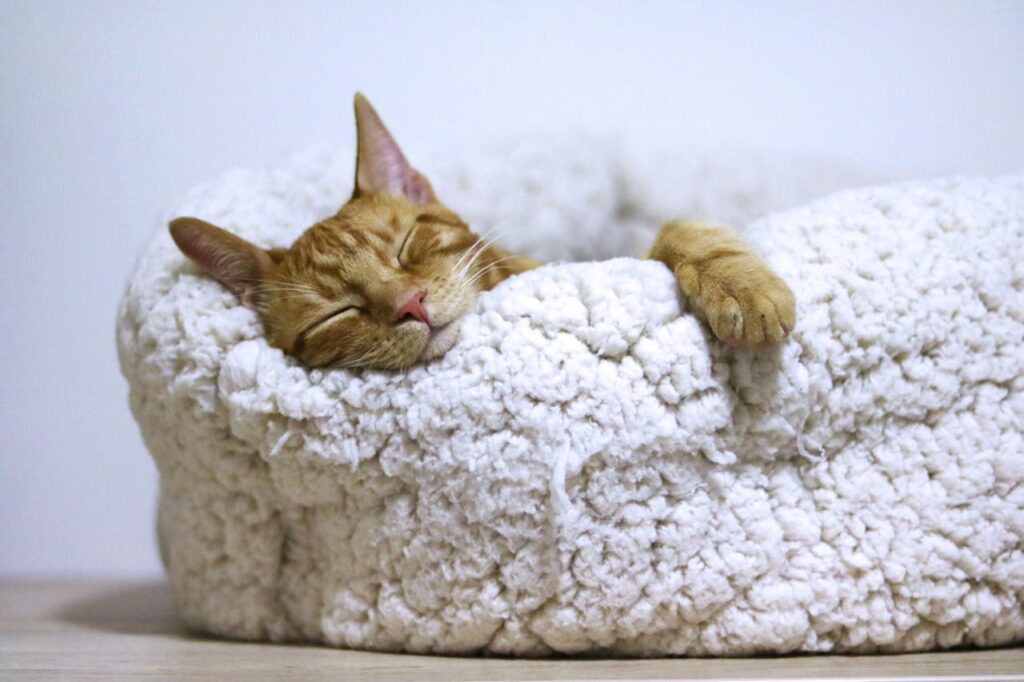
Meditation and Sleep: A Guide to Restful Nights and Renewed Energy
In modern life, sleep often takes a backseat, leaving many of us feeling exhausted and drained. However, there is a powerful ally in the quest for restful nights and renewed energy: meditation. In this comprehensive guide, we’ll explore the profound connection between meditation and sleep, uncovering how meditation practices can transform your sleep quality and overall well-being.
Understanding the Sleep Cycle
Before delving into the relationship between meditation and sleep, it’s essential to understand the intricacies of the sleep cycle. Sleep consists of several stages, including non-REM (rapid eye movement) and REM sleep. Each stage plays a vital role in restoring the body and mind, promoting physical recovery, memory consolidation, and emotional regulation.
The Impact of Stress on Sleep
Stress is a pervasive disruptor of sleep, often leading to insomnia, fragmented sleep, and restless nights. In today’s fast-paced world, chronic stress has become a prevalent issue, affecting millions of individuals worldwide. Stress triggers the body’s “fight or flight” response, releasing hormones like cortisol and adrenaline, which can interfere with the natural sleep-wake cycle.
Meditation as a Stress-Reduction Tool
Meditation offers a powerful antidote to stress, providing a pathway to inner calm and relaxation. Through mindfulness meditation, individuals learn to cultivate present-moment awareness, observing thoughts and emotions without judgment. This practice fosters a sense of inner peace and resilience, helping to mitigate the effects of stress on the body and mind.
The Science Behind Meditation and Sleep
Numerous studies have investigated the effects of meditation on sleep quality and duration. Research published in the Journal of the American Medical Association (JAMA) found that mindfulness meditation can improve sleep efficiency, reduce insomnia symptoms, and enhance overall sleep quality. Additionally, studies utilizing brain imaging techniques have shown that meditation promotes changes in brain regions associated with sleep regulation and emotional processing.
Meditation Techniques for Better Sleep
Practicing meditation can significantly improve sleep quality and duration. Here are effective meditation techniques to incorporate into your bedtime routine:
- Mindfulness Meditation:
- Focus on your breath and stay present in the moment.
- Helps quiet the mind and reduce stress, leading to deeper sleep.
- Guided Imagery:
- Visualize a serene environment, such as a peaceful beach or forest.
- Promotes relaxation and eases the transition into sleep.
- Progressive Muscle Relaxation:
- Tense and then slowly release each muscle group from head to toe.
- Reduces physical tension and calms the mind.
- Body Scan Meditation:
- Mentally scan your body, noting any tension or discomfort, and then release it.
- Promotes a state of relaxation conducive to sleep.
- Mantra Meditation:
- Use a repeated phrase or sound to focus the mind.
- Prevents wandering thoughts that can interfere with falling asleep.
- Breathing Exercises:
- Practice the 4-7-8 technique: inhale for four seconds, hold for seven, exhale for eight.
- Regulates the nervous system and prepares the body for restful sleep.
Incorporating Meditation into Your Bedtime Routine
To harness the benefits of meditation for sleep, consider establishing a bedtime ritual that includes meditation practices. Start by setting aside a few minutes each night to engage in mindfulness meditation, gradually increasing the duration as you become more comfortable with the practice. Experiment with different techniques to find what resonates best with you, whether it’s mindful breathing, visualization, or progressive muscle relaxation.
Conclusion
In conclusion, the symbiotic relationship between meditation and sleep offers a pathway to profound healing and rejuvenation. By integrating meditation practices into your daily routine, you can cultivate inner peace, alleviate stress, and experience the transformative power of restful sleep. As you embark on this journey of self-discovery and well-being, may you find solace in the embrace of mindfulness and the embrace of a good night’s sleep.

Sources:
- Black, D. S., O’Reilly, G. A., Olmstead, R., Breen, E. C., & Irwin, M. R. (2015). Mindfulness meditation and improvement in sleep quality and daytime impairment among older adults with sleep disturbances: a randomized clinical trial. JAMA internal medicine, 175(4), 494-501.
- Khoury, B., Sharma, M., Rush, S. E., & Fournier, C. (2015). Mindfulness-based stress reduction for healthy individuals: A meta-analysis. Journal of psychosomatic research, 78(6), 519-528.
- Ong, J. C., Shapiro, S. L., & Manber, R. (2008). Combining mindfulness meditation with cognitive-behavior therapy for insomnia: a treatment-development study. Behavior therapy, 39(2), 171-182.
- Zgierska, A., Rabago, D., Chawla, N., Kushner, K., Koehler, R., & Marlatt, A. (2009). Mindfulness meditation for substance use disorders: A systematic review. Substance abuse, 30(4), 266-294.


